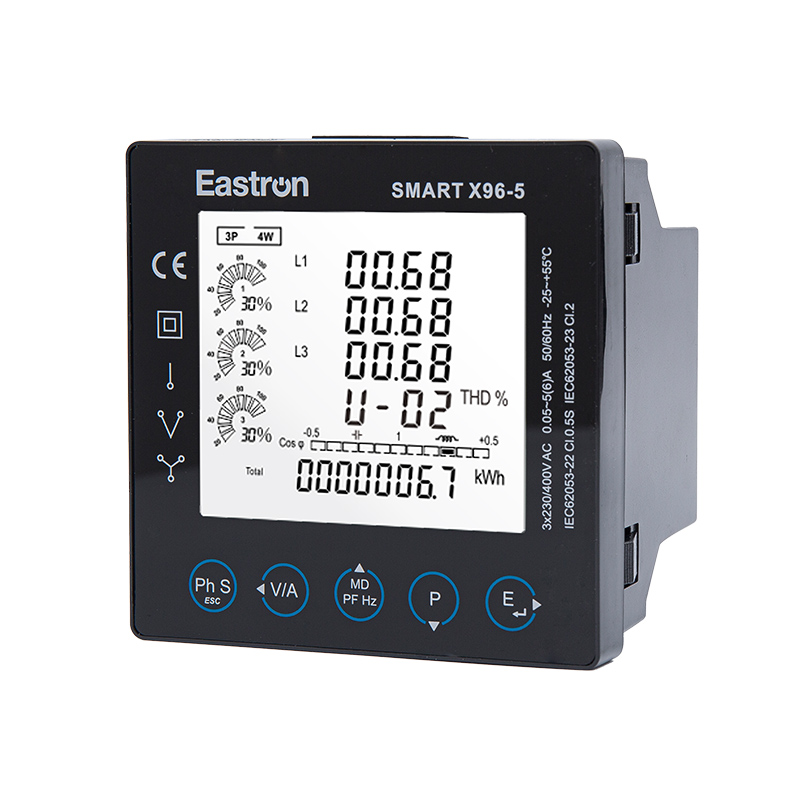Product Consultation
Your email address will not be published. Required fields are marked *
Both power meters and power analyzers are essential tools used for measuring electrical power, but they serve different purposes and are designed to provide different levels of detail. Here's a breakdown of the primary differences between the two:
1. Function and Purpose
Power Meter:
A power meter is primarily used to measure the amount of electrical power being consumed or delivered by an electrical device or system. It provides a single or average reading of power consumption, typically in units of watts (W) or kilowatts (kW).
Power meters are generally simpler and are used for basic monitoring of electrical consumption over time.
Power Analyzer:
A power analyzer, on the other hand, provides detailed measurements of both real-time power and power quality. It’s designed to measure more complex parameters like voltage, current, power factor, harmonics, and frequency.
Power analyzers are used for analyzing the quality of power, efficiency of electrical systems, and to troubleshoot power-related issues in both industrial and laboratory settings.
2. Measurement Scope
Power Meter:
Power meters typically measure active power (the actual power consumed by a load), but some models also measure apparent power and reactive power.
These devices are ideal for basic power consumption measurements in applications like electrical panels, appliances, or electrical outlets.
Power Analyzer:
Power analyzers go beyond just measuring active power. They can capture voltage and current waveforms, harmonic distortion, power factor, total harmonic distortion (THD), and other electrical parameters.
They provide in-depth analysis of both the electrical performance and power quality in systems, helping engineers or technicians assess system stability and efficiency.
3. Complexity and Usage
Power Meter:
Power meters are often simpler and easier to use, offering straightforward readings of power consumption. Many household and industrial systems use them to monitor overall power usage.
They are commonly used in billing systems or energy management for basic consumption tracking.
Power Analyzer:
Power analyzers are more sophisticated tools used by engineers, technicians, and researchers. They offer detailed insights into power quality, load analysis, and the overall electrical environment.
They are commonly used in testing environments, R&D labs, and manufacturing settings where precise electrical measurements and diagnostics are required.
4. Data Logging and Reporting
Power Meter:
Most basic power meters simply provide real-time readings or store historical data over a short period (usually a day or a month). They often don’t have advanced data processing or reporting features.
Power Analyzer:
Power analyzers come with advanced data logging, trend analysis, and report generation capabilities. They can track long-term performance, store large amounts of data, and generate detailed reports on power quality and system behavior, which is crucial for comprehensive analysis.
5. Cost and Application
Power Meter:
Power meters are usually more affordable and are used in simpler applications like monitoring the power usage of a single device or household systems. They’re ideal for scenarios where basic power measurement is required.
Power Analyzer:
Power analyzers are more expensive and are used in complex, high-demand scenarios such as industrial applications, power system audits, and equipment testing. These devices are indispensable for analyzing complex systems where power quality is critical.
Summary of Key Differences
| Feature | Power Meter | Power Analyzer |
| Purpose | Basic power consumption measurement | In-depth analysis of power quality and system performance |
| Scope of Measurement | Active power, apparent power, reactive power | Active power, harmonics, power factor, voltage, current, THD |
| Complexity | Simple, for everyday monitoring | Advanced, for in-depth diagnostics and analysis |
| Data Logging | Short-term, simple data collection | Long-term data logging with advanced analysis capabilities |
| Cost | Affordable | Expensive, high-end tool for professionals |
| Usage | Residential, commercial, and basic industrial use | Engineering, R&D, industrial troubleshooting |

In essence, power meters are ideal for simple, straightforward power measurement, while power analyzers are designed for more detailed, comprehensive analysis of electrical systems and power quality. If you need basic monitoring, a power meter should suffice, but for in-depth diagnostics, efficiency testing, or power quality analysis, a power analyzer is the right tool.
Your email address will not be published. Required fields are marked *
We develop and produce high performance electricity meters, power analyzers, current sensors, communication modules and management systems. China Custom Smart Meters Manufacturers and Factory
Address:NO 52, Dongjin Road, Nanhu, Jiaxing, Zhejiang, China
Copyright @ Eastron Electronic Co., Ltd. All rights reserved Electricity Meters Manufacturers
